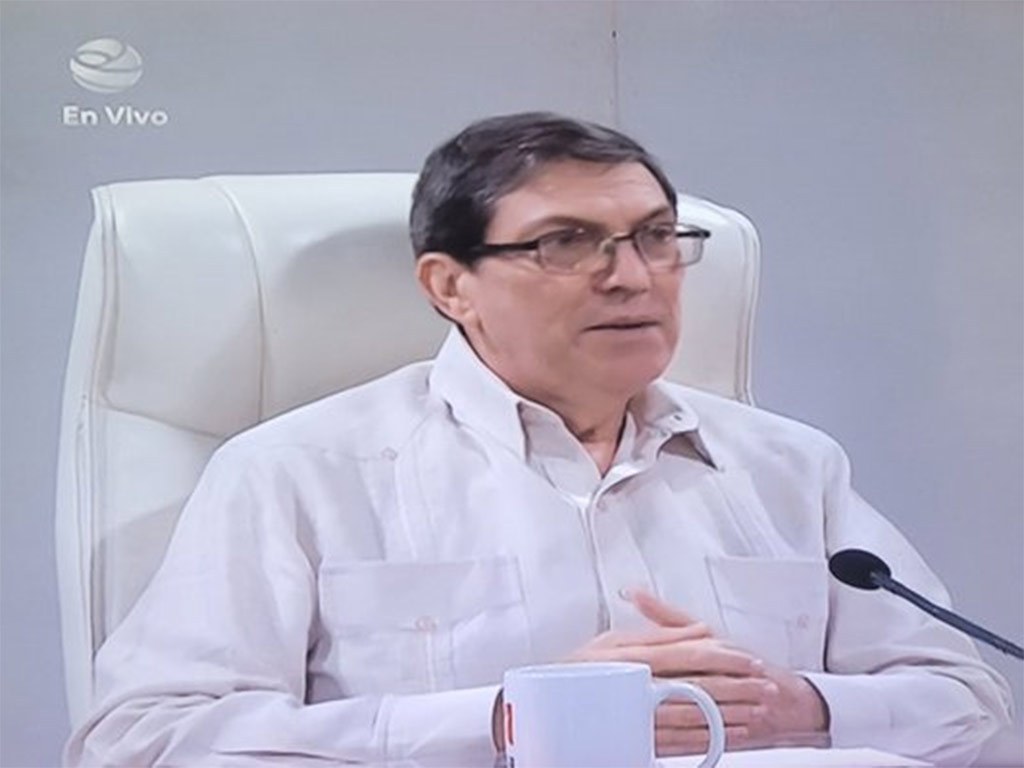The foreign minister also noted the country’s close relationship with regional organizations, including the Community of Latin American and Caribbean States (CELAC), the Bolivarian Alliance for the Peoples of Our America-People’s Trade Treaty (ALBA-TCP), and the Caribbean Community (CARICOM).
In addition, holding the 10th anniversary of the Declaration of Latin America and the Caribbean as a Zone of Peace, an initiative signed in Havana.
The Cuban diplomat also expressed his gratitude for the international condemnation of the economic, commercial, and financial blockade imposed by the United States more than six decades ago and Cuba’s unjust inclusion in Washington’s State Sponsors of Terrorism (SSOT) list.
He denounced that historically, Washington’s relationship with Cuba has been imperialist, hegemonist, and interventionist, seeking the reinstallation of a neo-colonialist government.
The blockade, he said, is implemented with unprecedented rigor, and its first manifestation was during the Covid-19 pandemic when the White House prevented the entry of oxygen from the United States and third countries.
Rodríguez described the current international situation as complex and of change, resulting in threats to peace and security. The minister also underlined the growing polarization and global inequality, mainly due to US imperialism and the proliferation of conflicts, economic instability, and inflation.
The head of Cuban diplomacy emphasized that the only way to solve this situation was by defending the struggles of the southern countries and cooperation based on respect between the peoples of the South and the North.
jrr/iff/rgh/mpp










